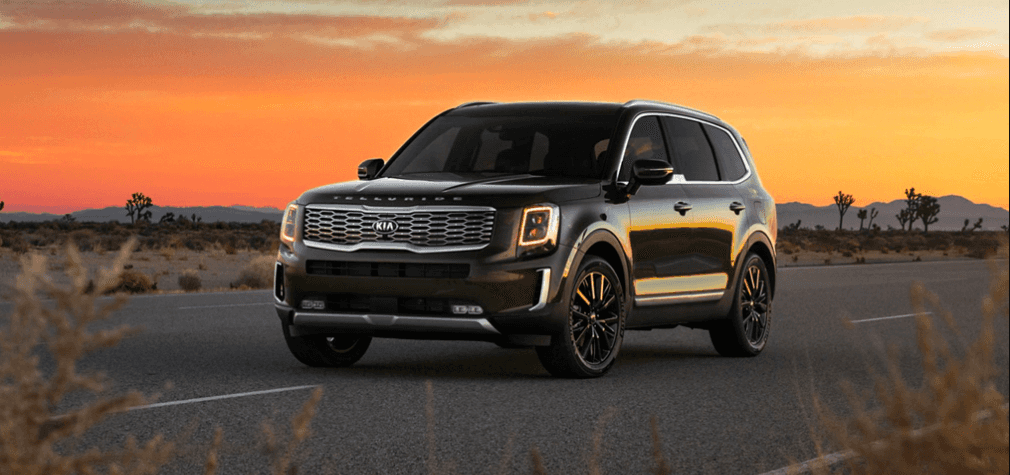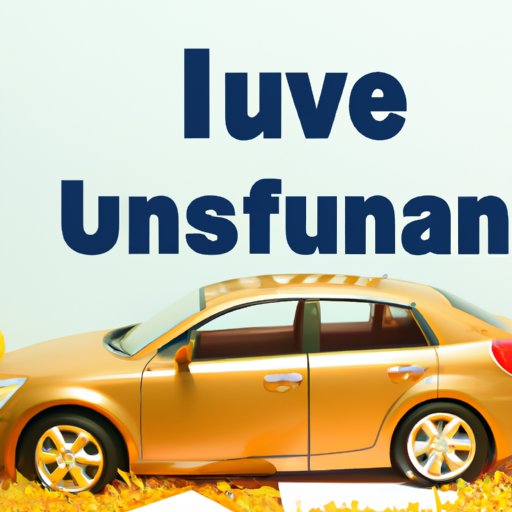Do You Need Full Coverage on a Used Financed Car?
As a car owner, it's important to understand your insurance coverage and make sure you have the appropriate level of protection for your vehicle. If you have a used car that is financed, you might be wondering if you need full coverage insurance. In this article, we will explore this topic and address some common questions.
1. What is full coverage insurance?
Full coverage insurance typically refers to a combination of liability, collision, and comprehensive coverage. Liability coverage helps protect you financially if you are at fault in an accident and cause injuries or property damage. Collision coverage helps pay for repairs or replacement if your car is damaged in a collision. Comprehensive coverage protects against theft, vandalism, and other non-collision incidents.

Answer: Full coverage insurance includes both liability and physical damage coverage. It is often recommended for financed cars to protect the investment and comply with the lender's requirements. While liability coverage is usually mandatory, collision and comprehensive coverage may be optional depending on the lender's policies. Some points to consider: - Full coverage insurance provides financial protection for both you and the lender. - It can help cover repair or replacement costs for your financed car in case of an accident or other incidents. - Without full coverage, you may be responsible for covering the costs out of pocket.
2. Is full coverage insurance required for a used financed car?

Answer: Whether full coverage insurance is required for a used financed car depends on the lender's policies. Some lenders may require comprehensive and collision coverage, while others may only mandate liability coverage. It is essential to review your loan agreement or consult with your lender to understand their specific insurance requirements. Some points to consider: - Lenders may require full coverage insurance to protect their investment in the financed vehicle. - If full coverage is not a requirement, it is still recommended to consider it for comprehensive protection.
3. What are the benefits of having full coverage on a used financed car?
Answer: Full coverage insurance offers several benefits for a used financed car: - Financial Protection: Full coverage provides financial protection against various risks, including accidents, theft, vandalism, and natural disasters. - Vehicle Value: It helps protect the value of your financed car by covering repair or replacement costs in case of damage or loss. - Lender Requirements: If your lender mandates full coverage, maintaining it ensures compliance with their policies. - Peace of Mind: Having full coverage can give you peace of mind knowing that you are adequately protected in various scenarios.
4. Can I choose not to have full coverage on a used financed car?
Answer: While some lenders may allow you to choose not to have full coverage on a used financed car, it is not recommended. Without full coverage, you could be responsible for the expenses associated with damage or loss of your vehicle. Additionally, if your lender requires full coverage as part of the loan agreement, failing to maintain it may be a violation of the terms. Some points to consider: - Assess your risk tolerance and financial ability to cover potential expenses without insurance. - Review your loan agreement to determine if full coverage is a requirement. - Even if it is not required, consider the benefits of having full coverage for comprehensive protection.
5. How does full coverage insurance affect the cost of financing?
Answer: Full coverage insurance can affect the cost of financing in several ways: - Higher Premiums: Full coverage typically comes with higher insurance premiums compared to liability-only coverage. - Added Expense: The cost of full coverage insurance is an additional expense to consider when budgeting for your financed car. - Required by Lender: If your lender mandates full coverage, failure to maintain it could result in penalties or default on the loan. It is essential to factor in the cost of insurance when considering the overall cost of financing a used car.
6. Can I switch to liability-only coverage once the car is paid off?
Answer: Once the car is paid off, you have more flexibility in choosing your insurance coverage. You may choose to switch to liability-only coverage if it aligns with your risk tolerance and financial situation. However, it is essential to evaluate the potential risks and benefits before making a decision. Consider the value of your car, your ability to cover potential expenses, and the peace of mind provided by full coverage insurance.
7. What happens if I don't have full coverage and my financed car gets totaled?
Answer: If you don't have full coverage and your financed car gets totaled, you may be responsible for the remaining loan balance even if the car is no longer drivable. Without insurance to cover the loss, you would need to pay off the loan out of pocket. Some points to consider: - The remaining loan balance is the difference between the car's value and the amount you still owe. - Full coverage insurance would typically help cover this balance in the event of a total loss. It is crucial to carefully evaluate the financial risks before deciding to forego full coverage insurance.
8. Can I choose higher deductibles to lower the cost of full coverage?
Answer: Yes, choosing higher deductibles can help lower the cost of full coverage insurance. A deductible is the amount you must pay out of pocket before the insurance coverage kicks in. By opting for higher deductibles, you can reduce the insurance premium. However, it is essential to ensure that the chosen deductible is affordable for you in case you need to file a claim. Some points to consider: - Higher deductibles will require you to pay more upfront in the event of a claim. - Assess your risk tolerance and financial ability to cover the chosen deductible amount.
9. Does full coverage insurance apply to all drivers of the financed car?
Answer: Full coverage insurance typically follows the car, not the driver. This means that the insurance coverage should apply to all drivers of the financed car, as long as they are listed on the policy or have permissive use. However, it is always important to review your insurance policy and consult with your provider to confirm the coverage details.
10. Are there any alternatives to full coverage insurance for a used financed car?
Answer: While full coverage insurance is generally recommended for a used financed car, there may be some alternatives to consider: - GAP Insurance: Guaranteed Asset Protection (GAP) insurance covers the difference between your car's value and the amount you owe on the loan in the event of a total loss. This can help protect you from being responsible for the remaining loan balance. - Extended Warranties: Extended warranties can provide additional coverage for your vehicle's mechanical failures and repairs. While not a substitute for full coverage, they can offer some protection. It is important to carefully evaluate these alternatives and consider their limitations and costs before making a decision.
11. How can I find the best full coverage insurance for my used financed car?
Answer: To find the best full coverage insurance for your used financed car, consider the following steps: 1. Research: Compare insurance providers and policies to find the ones that offer the coverage and benefits you need. 2. Get Quotes: Obtain quotes from multiple insurance companies to compare premiums and coverage options. 3. Evaluate Coverage: Review the coverage limits, deductibles, and additional benefits offered by each policy. 4. Consider Reputation: Research the reputation and customer reviews of the insurance companies to gauge their reliability. 5. Seek Professional Help: Consider consulting an insurance agent or broker who can provide expert guidance and help you find the right coverage for your needs.
12. Can I cancel full coverage insurance on a used financed car?
Answer: You can choose to cancel full coverage insurance on a used financed car if it aligns with your needs and the lender's requirements. However, it is important to consider the potential consequences before making a decision. Cancelling full coverage insurance may leave you financially vulnerable in case of accidents, theft, or other incidents. Some points to consider: - Review the terms and conditions of your loan agreement to ensure compliance. - Assess the potential financial risk and your ability to cover potential expenses without insurance. It is advisable to consult with your lender and insurance provider before making any changes to your coverage.
 Answer: Full coverage insurance includes both liability and physical damage coverage. It is often recommended for financed cars to protect the investment and comply with the lender's requirements. While liability coverage is usually mandatory, collision and comprehensive coverage may be optional depending on the lender's policies. Some points to consider: - Full coverage insurance provides financial protection for both you and the lender. - It can help cover repair or replacement costs for your financed car in case of an accident or other incidents. - Without full coverage, you may be responsible for covering the costs out of pocket.
Answer: Full coverage insurance includes both liability and physical damage coverage. It is often recommended for financed cars to protect the investment and comply with the lender's requirements. While liability coverage is usually mandatory, collision and comprehensive coverage may be optional depending on the lender's policies. Some points to consider: - Full coverage insurance provides financial protection for both you and the lender. - It can help cover repair or replacement costs for your financed car in case of an accident or other incidents. - Without full coverage, you may be responsible for covering the costs out of pocket.  Answer: Whether full coverage insurance is required for a used financed car depends on the lender's policies. Some lenders may require comprehensive and collision coverage, while others may only mandate liability coverage. It is essential to review your loan agreement or consult with your lender to understand their specific insurance requirements. Some points to consider: - Lenders may require full coverage insurance to protect their investment in the financed vehicle. - If full coverage is not a requirement, it is still recommended to consider it for comprehensive protection.
Answer: Whether full coverage insurance is required for a used financed car depends on the lender's policies. Some lenders may require comprehensive and collision coverage, while others may only mandate liability coverage. It is essential to review your loan agreement or consult with your lender to understand their specific insurance requirements. Some points to consider: - Lenders may require full coverage insurance to protect their investment in the financed vehicle. - If full coverage is not a requirement, it is still recommended to consider it for comprehensive protection.